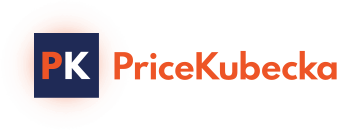If your business has a 401(k) plan with 100 or more account balances at the beginning of a plan year, you are required to perform a 401(k) audit. The audit report must be finished and filed with the IRS by July 31. In other words, the clock is ticking!
Looking for an EBP Auditor? Here’s what’s important to consider.
The first step in the 401(k) audit process is to find a qualified, independent auditor. But not any CPA will do! Choosing the wrong auditor can have severe consequences for your company, your plan, and your plan’s participants. To help you in your search, PriceKubecka’s 401(k) audit team has compiled a list of criteria you should consider when selecting a 401(k) auditor.

Experience & Expertise
Look for auditors with specific expertise in auditing employee benefit plans, particularly 401(k) plans. They should be familiar with the complexities and regulations governing these plans, such as the Employee Retirement Income Security Act (ERISA) and Department of Labor (DOL) requirements. Experienced auditors will have performed hundreds of 401(k) audits and therefore, have better knowledge of plan design and service provider nuances that are integral to the 401(k) audit.
In the Department of Labor’s most recent Audit Quality Study, firms with a higher volume of work on EBP audits produce better results. PriceKubecka performs more than 400 high caliber audits every year, placing us in the top 1% of CPA firms in the United States.
In addition to asking about quantity, also find out who’s working on all those audits. Many CPA firms use interns or inexperienced professionals to work on 401(k) audits, which makes those audits prone to errors and too many unnecessary questions. PriceKubecka exclusively employs licensed CPAs with substantial experience. Additionally, our work undergoes peer review through the AICPA, ensuring quality and accuracy.
Cost & Value
When evaluating potential auditors, consider the auditor’s fees in relation to the value they provide. While cost is a key factor, you should prioritize value and the quality of the audit services. A thorough and accurate audit can help prevent costly penalties and compliance issues in the long run.
But a thorough and accurate audit doesn’t also have to be expensive! Opting for a transparent, flat-fee pricing model ensures clarity regarding costs before the audit commences. For instance, by leveraging advanced technology, PriceKubecka can provide a high-quality flat-fee audit for $10,000 – a fraction of what an hourly-based audit would cost! PriceKubecka makes it easy for companies to know exactly how much their audit will cost.
Streamlined Process
As the saying goes, time is money. Look for auditors who minimize the time and effort required for the audit process.
Technology can have an enormous impact on the process of an audit. While most auditors use manual programs and require the client to perform all information gathering, PriceKubecka uses proprietary software that allows for a 100% remote audit experience.
Our powerful technology connects directly to your record keeper to gather data so there is no need for you to spend hours fielding questions and emailing documents. Moreover, technology paired with expert human resources ensures a high level of accuracy that you can trust.
Communication & Compatibility
Finally, choose an auditor who aligns with your company’s values, culture, and goals. A good fit in terms of communication style, responsiveness, approach to auditing, and understanding of your business can enhance the audit process and facilitate a productive working relationship.
Conclusions
Don’t take a chance on an inexperienced 401(k) auditor. Even if you already have a CPA for other financial matters, find an experienced 401(k) auditor so disruptions to your current workflow are minimized.
At PriceKubecka, it’s our mission to ensure clients have a better audit experience. CONTACT US today to get your high-quality, low-cost audit started and finished well before the July 31 deadline.



